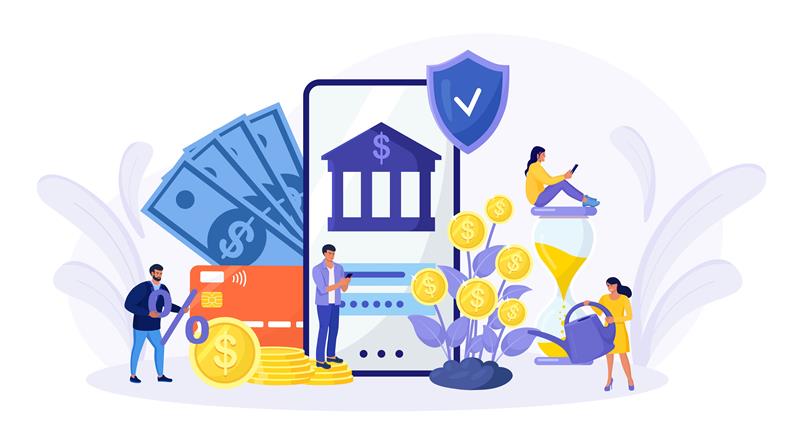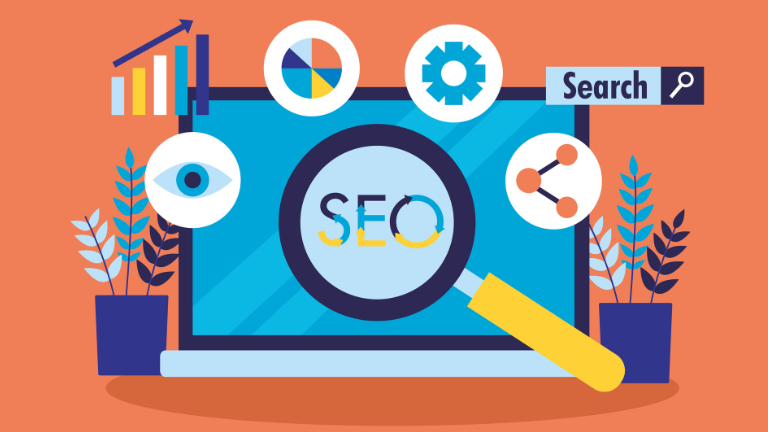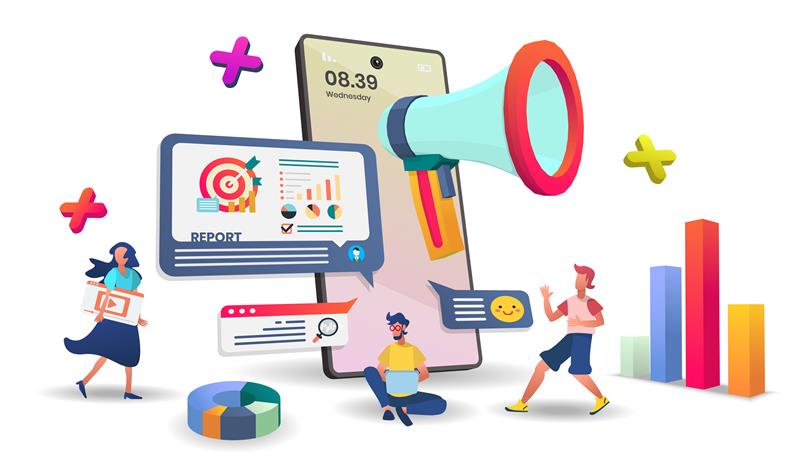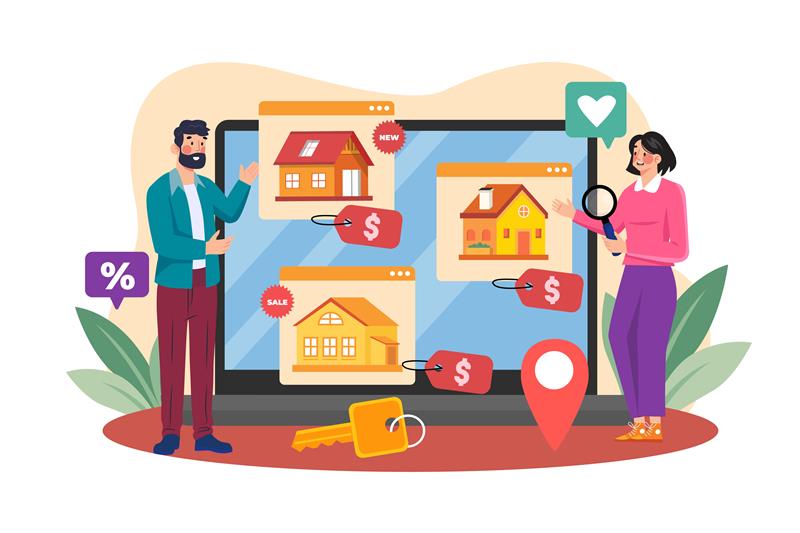The world today is digital, fast-paced, and rapidly transforming. The banking sector is no exception. Consumers no longer visit banks at different branches for every transaction; they’d rather prefer a more convenient, personalized, and seamless digital experience. This shift is more than just a fleeting trend – it presents both a challenge and an opportunity for the banking sector. The challenge is staying relevant and competitive in an increasingly crowded digital space; the opportunity lies in leveraging digital marketing to attract, engage, and retain customers more effectively than ever before.
While baking itself is getting increasingly digitized, understanding how to navigate the unique dynamics of digital marketing for the banking sector can help unlock immense value for your clients. In this guide, we explore how to master digital marketing for the banking industry, from the core principles to practical strategies.
Why Digital Marketing for Banks Matters
Traditionally, banks relied on physical locations, print advertising, and word-of-mouth. But the digital landscape has changed all that. According to Zendesk, about 84% of consumers now prefer online banking.
This is a major behavioural shift that highlights the importance of a strong digital presence – no longer optional but essential. Digital marketing allows banks to:
- Reach younger, digital-first customers
- Personalize offerings based on customer behaviour
- Build trust and credibility through consistent content
- Engage audiences across platforms
- Increase cross-selling and upselling opportunities
As banks operate in a highly regulated industry, the messaging must be compliant, secure, and sensitive. As a result, digital marketing strategies for banks must be carefully crafted.
Key Pillars of Digital Marketing in Banking
To build a solid digital marketing strategy for banking sector, you need to focus on six foundational pillars:
1. Search Engine Optimization (SEO)
Banks offer a wide range of services—from savings accounts to mortgages to investment planning. A well-executed SEO strategy ensures these services appear in search results when customers are actively seeking them.
Tactics include:
- Optimizing website content for high-intent keywords (e.g., “best personal loan 2025”)
- Creating educational blog content around financial topics
- Local SEO optimization for physical branches
- Structured data and schema markup for FAQs and reviews
2. Pay-Per-Click (PPC) Advertising
Paid advertising or PPC is a highly effective and powerful medium for lead generation and digital marketing in the banking sector. Platforms like Google Ads and LinkedIn allow for targeted campaigns based on demographics, interests, and online behaviour.
Best practices:
- Use lead forms for quick conversion
- A/B test ad creatives and CTAs
- Implement negative keywords to reduce waste
- Focus on high-value services (e.g., home loans, credit cards)
3. Content Marketing
Consumers are more aware and alert than ever before. They make informed financial decisions, and seek transparency at all times. Banks can earn trust by providing valuable, educational content that helps consumers solve problems and meet their goals.
Some of the examples of educational content in the banking sector include:
- Financial wellness blogs
- Interactive calculators (e.g., mortgage or retirement)
- Video explainers on banking products
- Case studies and testimonials
4. Email Marketing & Automation
Email remains to be one of the most effective tools for nurturing banking customers. With marketing automation, banks can deliver personalized messages at scale, driving engagement and retention.
Ideas for email campaigns:
- Welcome series for new customers
- Transactional and security updates
- Upsell/cross-sell opportunities (e.g., “You might also like…”)
- Educational newsletters with financial tips
Pro Tip: You must ensure that the content is mobile-optimized and complies with privacy regulations.
5. Social Media Marketing
From customer service to brand building, social media plays a growing role in how banks engage with the public.
Top platforms:
- LinkedIn – Best for B2B and professional content
- Facebook & Instagram – Great for consumer banking and lifestyle-driven content
- X (formerly Twitter) – Useful for updates, PR, and quick customer support
Use social listening tools to monitor sentiment and trends, and create a consistent brand voice across platforms.
6. Data Analytics and Compliance
Banks are the hub of sensitive data existing in huge amounts. Hence, the digital campaigns in banking sector must not only be effective but also secure and compliant with regulations like GDPR, CCPA, and local banking laws.
Your strategy must:
- Leverage customer data responsibly
- Implement robust tracking (Google Analytics, CRM integrations)
- Use consent-based targeting
- Ensure data security in email and advertising tools
Unique Challenges in Digital Marketing for Banks
Digital marketing for the banking industry comes with specific obstacles that must be looked after:
- Regulatory Restrictions
It is an absolute must for compliance teams to approve every piece of content. Moreover, it is crucial that all your marketing messages are free of false claims, guarantees, or misleading offers.
Solution: Work closely with legal/compliance teams. Build workflows that allow for pre-approvals and revisions.
- Building Trust
Constant ups and downs in the economy and financial scandals have resulted in consumers being sceptical about financial institutions.
Solution: Focus on transparency. Use real customer testimonials, certifications, security badges, and ethical messaging to build trust.
- Complex Customer Journeys
Banking products often involve long decision-making cycles, especially for mortgages, investments, or business accounts.
Solution: Use lead nurturing tactics—retargeting ads, email drip campaigns, and educational content—to guide prospects through the funnel.
Trends Shaping the Future of Banking Marketing
Staying ahead of the curve is key to winning in digital banking. Here are some of the emerging trends in banking marketing:
1. AI-Powered Personalization
AI can analyse customer behaviour and tailor recommendations in real time. From personalized loan offers to smart budgeting tips, the possibilities are endless.
2. Voice Search Optimization
As more people use smart assistants (like Siri and Alexa), optimizing for voice search will become a critical necessity.
3. Interactive & Video Content
Engaging content like live chats or interactive quizzes can boost time-on-site and conversions.
4. Mobile-First Design
More than 70% of digital banking interactions now happen on mobile devices. Campaigns, landing pages, and emails must all be mobile-optimized.
5. Fintech Collaboration
Banks are increasingly partnering with fintech companies. Hence, the digital marketing strategies must adapt to promote co-branded solutions and APIs.
Final Thoughts
The banking industry is evolving rapidly, and digital marketing is at the heart of that transformation. But marketing in this space requires more than creativity—it demands precision, trustworthiness, compliance, and a deep understanding of customer behaviour.
We at Gyaata, can be your strategic partner— mastering the nuances of banking marketing —and help your financial institution thrive in the digital age.
We are ready to help you build strategies rooted in data, fuelled by creativity, and guided by regulation. Need help developing a winning digital marketing strategy for your bank? Let’s talk!













One Response
very nice content